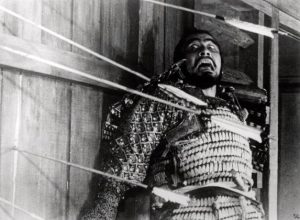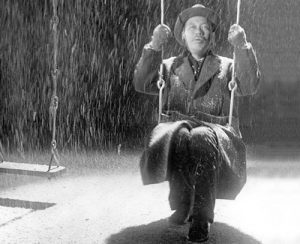There is something I believe about literature: Nonfiction allows us to learn about stuff, but fiction allows us to learn about us. Reading fiction can help us to become better people. It fosters our senses of empathy and sympathy. If we think about and try to understand the motives of the characters in a novel or short story, we are more likely able to understand better them better—and ourselves in the bargain.
Films can do that, too. The films we’ll discuss in my Toronto Pursuits seminar on the great Japanese director Akira Kurosawa do that amazingly well.
 These films must be discussed to be understood. As in anything worth reading, films reward careful attention. Because all the senses are involved while watching a movie, you must be aware of how your body and mind are responding to what you are seeing and hearing. How does the music impact you? How does the director’s framing of the shot change how you feel? When there is colour, how does the colour engage you with the action?
These films must be discussed to be understood. As in anything worth reading, films reward careful attention. Because all the senses are involved while watching a movie, you must be aware of how your body and mind are responding to what you are seeing and hearing. How does the music impact you? How does the director’s framing of the shot change how you feel? When there is colour, how does the colour engage you with the action?
In our seminar, we’ll discuss the effects that music, movement, lighting, editing, and atmosphere have on us. As well as the usual suspects of character, plot and narrative structure. This will be work you may have not done before, and it will open you up to seeing film—and reading literature—as nothing else has.
Let’s take a closer look at the five films we will be studying at Toronto Pursuits.
Rashomon
An amazingly inventive film. How can we know what we know? What is true? This is perhaps one of the most influential films ever made, and one of the most imitated. Even if you’ve never seen this movie before, you have almost certainly seen another director’s take on it. We’ll start the week with this film, since it has so much to say about how we’ll understand other films.
 Ikiru
Ikiru
Kurosawa’s version of The Death of Ivan Ilyich, moved me to tears when I first saw it. It has done so every time I revisit it. What does my life mean? What will it have meant once I am gone? The final scene is unmatched in beauty and simplicity.
Throne of Blood
This film takes us into Macbeth as few other performances have. Literary critic Harold Bloom believed it to be “the most successful film version of Macbeth.” It’s intense.
The Bad Sleep Well
Gives Hamlet a post-WWII twist that makes me reconsider its meaning. Kurosawa expands and intensifies the story, making it more real than it had ever been for me, making it more significant and immediate for us all.
Ran
Kurosawa’s King Lear is almost operatic in treatment. This is a majestically beautiful and haunting film. The title means “chaos” in Japanese.
To help us discuss these films at Toronto Pursuits, I am preparing scene-by-scene breakdowns of each film. We’ll be able to refer to these to remind us of the ‘text’ of each film, and I hope you will use these to record your observations and questions. We may review brief scenes during our daily sessions, but not the entire film or even large parts of it, so I suggest you watch each film several times before we meet.
Practical Info
And some practical advice: All of our films except Ran are part of the Criterion Collection. You can buy them, or purchase a short -or long-term subscription to watch them online through the Criterion Channel. They are also available at most libraries, and as DVDs. To find out where you can access them, see JustWatch in the US and JustWatch Canada in, well, Canada.
In addition, starting on the Sunday afternoon before Toronto Pursuits begins, I’ll screen each film the day before our session to make sure we all have the opportunity of a recent experience of the film. All Toronto Pursuits attendees are welcome. Film is, above all, an experience.
We will delve deeply into these films. You will love it!
For more information on our Toronto Pursuits seminar, Akira Kurosawa’s Greatest Films, click here.
— David
